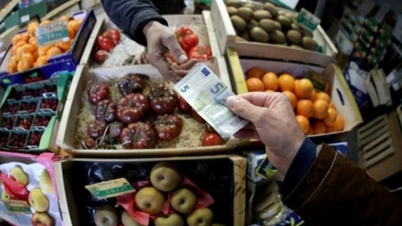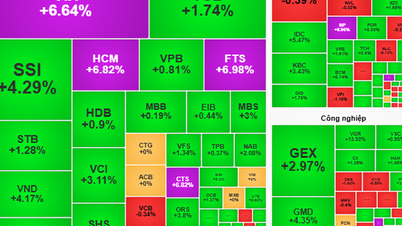 |
| The outlook for financial stability in the Eurozone remains fragile. (Source: AFP) |
The outlook for the financial stability of the euro area remains fragile, as tighter financial conditions are increasingly spreading to the economy in an environment of weak growth, high inflation and heightened geopolitical tensions, according to the ECB’s November 2023 Financial Stability Assessment.
“The weak economic outlook and the resulting high inflation are undermining the ability of people, businesses and governments to repay their debts,” said ECB Vice President Luis de Guindos. “It is important that we remain vigilant as the economy moves into an environment of higher interest rates and heightened geopolitical tensions and uncertainties.”
Financial markets and non-bank financial institutions remain highly sensitive to further negative developments and may face surprises as economic growth slows. At the same time, investment funds and other non-bank financial institutions remain vulnerable to liquidity, credit and leverage risks, which further underscores the need to strengthen the resilience of financial markets from a macroprudential perspective.
While tighter financial and credit conditions are increasingly leading to higher debt servicing costs, the full impact on economic activity has yet to materialize, as overall lending tenors across economic sectors are extended when interest rates are very low.
Both the financial and non-financial sectors could face challenges ahead as debt servicing costs rise. This effect has been clearly seen in the Eurozone property market, which is experiencing a downturn.
In the residential property market, prices have fallen due to declining affordability and rising mortgage costs. In the commercial property market, the impact of higher finance costs has been reinforced by lower demand for office and retail space in the wake of the pandemic.
Overall, the Eurozone banking system is well-capitalized. Macroprudential authorities have recently increased buffer requirements to help banks become more resilient. To protect the resilience of the financial system, ECB Vice President Luis de Guindos said that macroprudential authorities should maintain capital buffers along with measures to ensure sound lending standards to help banks navigate the financial cycle more easily.
However, it is essential that the remaining Basel III reforms (reform rules issued by the Basel Committee on Banking Supervision in 2010 to raise standards in regulation, supervision and risk management in the banking sector) are implemented in good faith and the banking union is completed.
A comprehensive and decisive policy response to address structural vulnerabilities in the non-bank financial sector, such as those stemming from liquidity or leverage risks, is still needed to strengthen the resilience of the financial system, Guindos said.
Eurozone banks have proven resilient to shocks since the pandemic and are seeing rising profits, but they are facing headwinds from three main sources, according to Patrick Artus, an economist and adviser at Natixis.
First , funding costs are expected to increase as banks gradually pass on higher interest rates to depositors and the funding mix shifts from overnight deposits to time deposits or higher-value bonds.
Second , bank asset quality may be affected by higher debt servicing costs and a weak macroeconomic environment.
Third , bank profits will face a significant decline in loan volumes due to higher lending rates coupled with lower loan demand and tighter credit standards.
Therefore, expert Patrick Artus believes that the ECB should maintain high base interest rates for much longer than the US. Many speculate that the US Federal Reserve (Fed) will lower interest rates in early 2024, while the ECB should maintain interest rates at 4% to 4.75% until 2025. According to this expert, Eurozone inflation in 2024 is expected to reach 4.2% because it will no longer benefit from low energy prices.
After falling to 2.9% in October 2023, eurozone inflation is expected to slow further in November 2023, but European officials have warned that inflation could accelerate in the short term. ECB President Christine Lagarde said the ECB's 2% inflation target would only be reached in the second half of 2025.
To improve the situation, reduce inflation and restart growth, Mr. Patrick Artus emphasized that the 27 member states of the European Union (EU) must implement the European Inflation Reduction Act as the US has done. Expert Patrick Artus affirmed: “We must provide tax support packages for investment instead of bureaucratic and inefficient public subsidies. We need to think about an effective European economic policy by re-industrializing to attract investment. However, there is still a problem of declining productivity related to the aging population, low investment in technology and labor shortage. Therefore, the US market is still much more attractive to investors than Europe”.
Source







































































![[Photo] General Secretary To Lam attends the launch of 3 digital platforms serving the implementation of Resolution No. 57-NQ/TW](https://vphoto.vietnam.vn/thumb/402x226/vietnam/resource/IMAGE/2025/7/2/d7fb7a42b2c74ffbb1da1124c24d41d3)





































Comment (0)